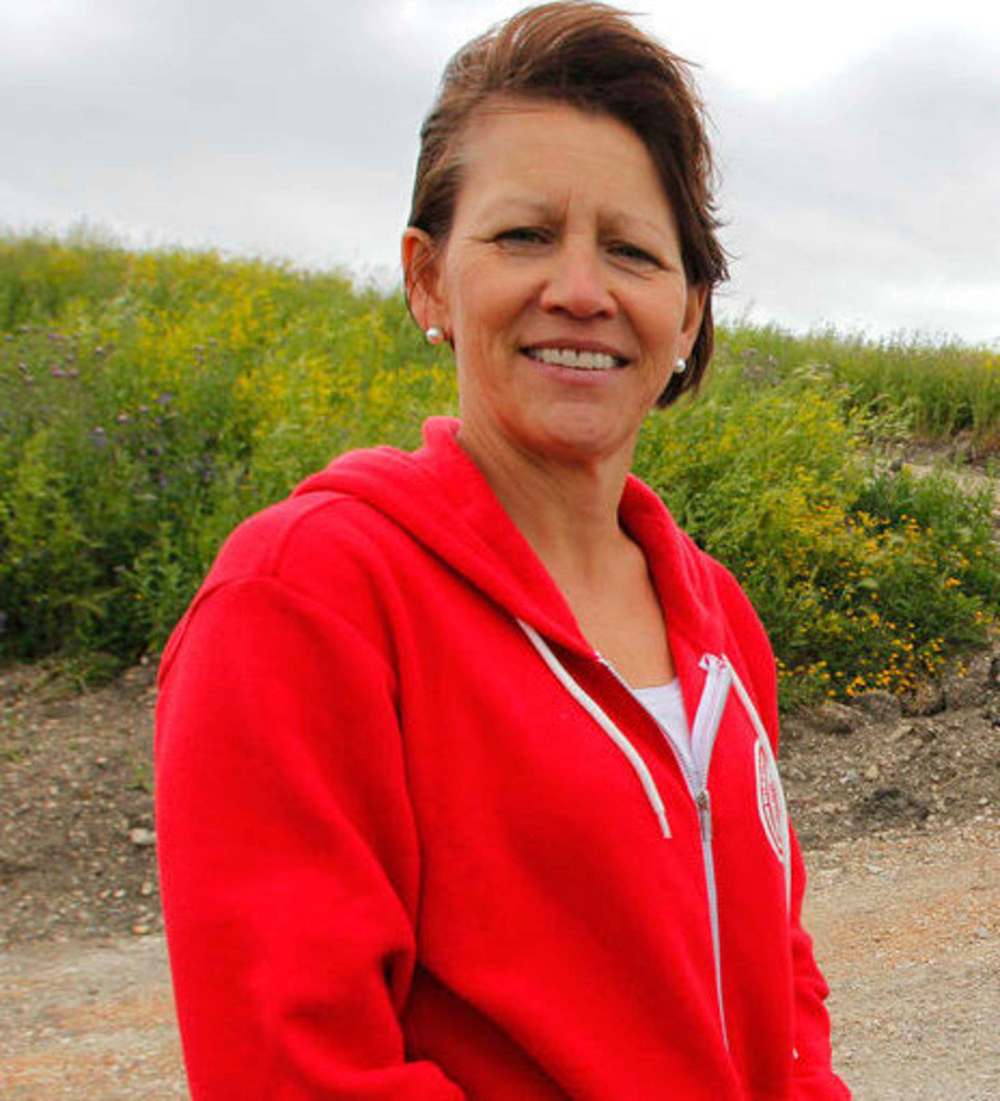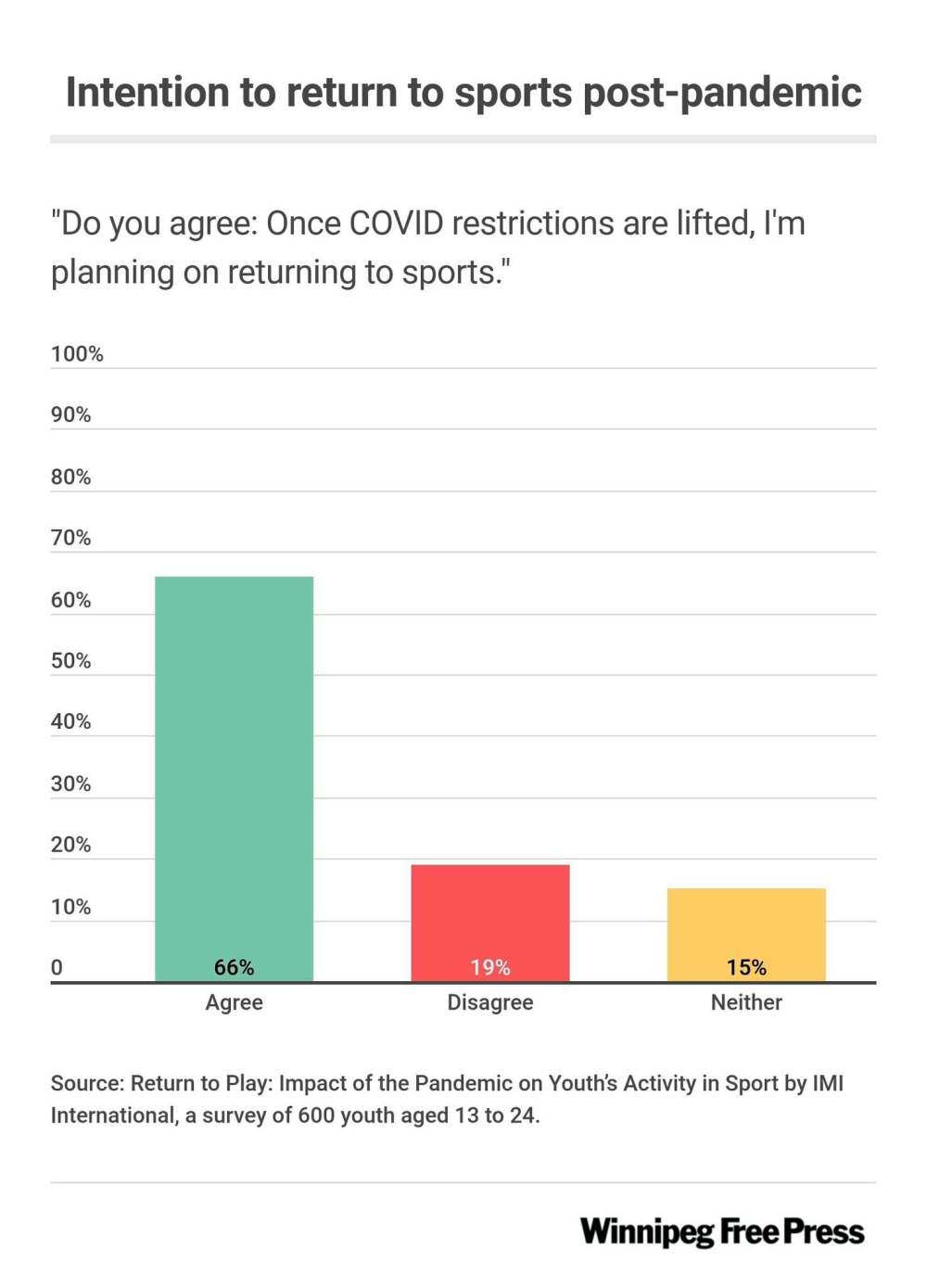An undiscerning killer In addition to claiming lives, COVID-19 is slowly suffocating amateur sport
Read this article for free:
or
Already have an account? Log in here »
To continue reading, please subscribe:
Monthly Digital Subscription
$19 $0 for the first 4 weeks*
- Enjoy unlimited reading on winnipegfreepress.com
- Read the E-Edition, our digital replica newspaper
- Access News Break, our award-winning app
- Play interactive puzzles
*No charge for 4 weeks then billed as $19 every four weeks (new subscribers and qualified returning subscribers only). Cancel anytime.
Read unlimited articles for free today:
or
Already have an account? Log in here »
Hey there, time traveller!
This article was published 18/04/2021 (1096 days ago), so information in it may no longer be current.
One year out of high school, Anthony Zarow didn’t think he’d be sending the text message he did.
But this winter’s lockdown took its toll on the 19-year-old quarterback out of St. Paul’s High School.
Zarow, who signed with the Canadian Junior Football League’s Winnipeg Rifles last summer, still loves the game, but had reached a crossroads.
So, after months of thinking, last week Zarow reached out to Rifles head coach Geordie Wilson and told him he’s done with competitive football. With all the uncertainty surrounding the amateur sports scene owing to the pandemic, Zarow decided he needs to focus on school and work. If the pandemic hadn’t happened, Zarow would never have considered taking what for him, was a drastic step. But it did, thus Zarow and many other athletes his age have decided to forego competitive sports.
“There are a lot of us that are going to move on this year, or when sports do come back, probably a year after that cause athletes will realize they’re out of shape and things like that,” said Zarow in a phone interview.
“It just makes me so angry. You drive down two hours south of the border to North Dakota and they’re playing sports, they’re doing all that stuff. Not to get too political, but it’s just unfortunate that this government here can’t safely accommodate sports for kids. I think sports are important. Sports kept me out of a lot of stuff. It just all got pried away from me and it’s a sad ending.”
Zarow’s curtailed career might be all too common for young Canadian athletes today. The Canada Games Council partnered with IMI International for a national study on the impact of the pandemic on youth activity in sport. Over 2,000 Canadians ages 13 and over were surveyed, including 600 youth between the ages of 13-24. They were asked if they planned to return to sport once COVID restrictions are lifted and 1 in 3 said they are unsure, while 20 per cent answered they did not plan on returning.
“There are a lot of us that are going to move on this year, or when sports do come back, probably a year after that cause athletes will realize they’re out of shape and things like that.”
– Anthony Zarow, quarterback out of St. Paul’s High School
It is only one study, but conversations with members of the local sports community add weight to the findings. Ask Jenn Krahn, a high school teacher at Warren Collegiate Institute who coaches the 16U University of Manitoba Junior Bisons girls volleyball team. Her club volleyball team hasn’t seen a dip in numbers, but in the hallways at school, she’s hearing a different story.
“I would say, probably in the older ages, like our high school kids, we’re hearing those mumblings saying ‘What’s the point in us returning to sport? I’d rather just get a job. I don’t see this ending any time soon and I’m either graduating or entering Grade 12. I’m done with it all.’ I don’t know if it’s the mental fatigue with COVID and all the restrictions with sport, but I’ve heard those mumblings both in school and kind of out there in society,” Krahn said.

Sport Manitoba interim CEO Janet McMahon said while the numbers may appear alarming, it was a small study and there’s a good chance people may change their minds once restrictions are no longer needed. That doesn’t mean McMahon and her colleagues are ignoring the information.
“I think for us, there’s an opportunity here to re-evaluate what participants are seeking when they participate in sport and make some adjustments to programming to make sure they’re offering satisfying experiences and giving the consumer what they really want when they return back to play,” McMahon said.
“I think this study is suggesting there are teams that are rethinking whether they want to invest all their time and resources into what they were doing before. I think it could have significant impacts on the sports community.”
Dr. Adrienne Leslie-Toogood, director of sport psychology for Canadian Sport Centre Manitoba, said it’s a tough question to answer right now, as no one knows for sure which way they will move until the decision to play or not is staring them in the face.
“I think for us, there’s an opportunity here to re-evaluate what participants are seeking when they participate in sport and make some adjustments to programming to make sure they’re offering satisfying experiences and giving the consumer what they really want when they return back to play.”
– Sport Manitoba interim CEO Janet McMahon
“Not a lot of people sign up for sport to be in their basement on a Zoom call doing things alone. So sport is different right now and there’s a lot of people who are questioning whether they want to be in sport as it looks right now. People may have found other interests in their lives,” said Leslie-Toogood.
“It’s also tough if you look at it from an individual who’s been to the gym and then stops going for a while. It’s tough to get back going to the gym. It’s tough to get back into it. I think that when youth return to sport, it’ll be really important for coaches to take time to evaluate where they’re at currently and help them get better from there. I think a lot of those athletes will be comparing themselves prior to not doing their sport for a year. I think re-entry is always a bit turbulent and it’ll be really important to support youth during that time.”
In the early stages of the pandemic, young athletes were encouraged to use the time to rest their bodies and minds. But a year has been more than enough time for any bumps and bruises to heal. Now with certain events and seasons in danger of being cancelled for a second straight year, athletes are feeling the effects of the pandemic more than ever. Even those who aren’t considering quitting are hitting a wall and struggling to stay motivated.
“One of the highest Olympic level athletes I had a conversation with a while back was saying that he thinks at the end of this, there will be the biggest performance difference we’ve seen in sports because everyone will have handled the pause differently and everyone will re-enter sport in a very different phase,” said Leslie-Toogood.
“I think everyone’s just trying to find the role of sport in life. When you look at the way the brain is wired, the brain is wired towards negativity. It’s just the way our brains are built — you know, evolutionary — that’s what kept us alive. Sports and other things were the positives in our lives that helped counteract and balance that. You take all of that off the table, we’re just left with ourselves and our brain. I think everyone is figuring out ways to find joy, experience, meaning and purpose. I think kids got a lot of that out of sport and that’s not there anymore. When you take that away for a while, that’s a big thing.”
Zarow thought he’d be spending the coming weeks in training camp with the Rifles trying to win the starting job. Instead, the St. Andrews native will be working full-time at a vaccine clinic in Selkirk.
It’s an audible the quarterback wishes he hadn’t had to call.
“I try not to think too much about it because it just kind of hurts me each time I think about it,” he said.
“I started playing football at seven in the cruncher league or whatever and I’ve been playing ever since. I personally thought I was good enough to play university. I thought I got overlooked, so when I signed with the Rifles, I was ready to go in there, show what I can do and earn a scholarship. But I guess sh-t hit the fan. It’s pretty heartbreaking.”
taylor.allen@freepress.mb.ca
Twitter: @TaylorAllen31

Taylor Allen
Reporter
Eighteen years old and still in high school, Taylor got his start with the Free Press on June 1, 2011. Well, sort of...



.jpg?h=215)







